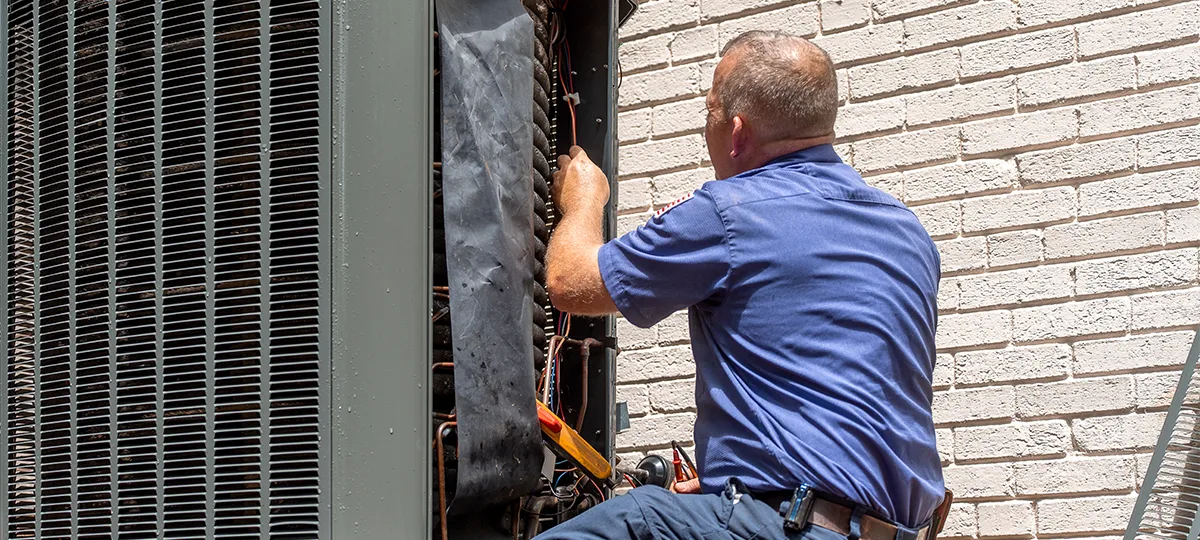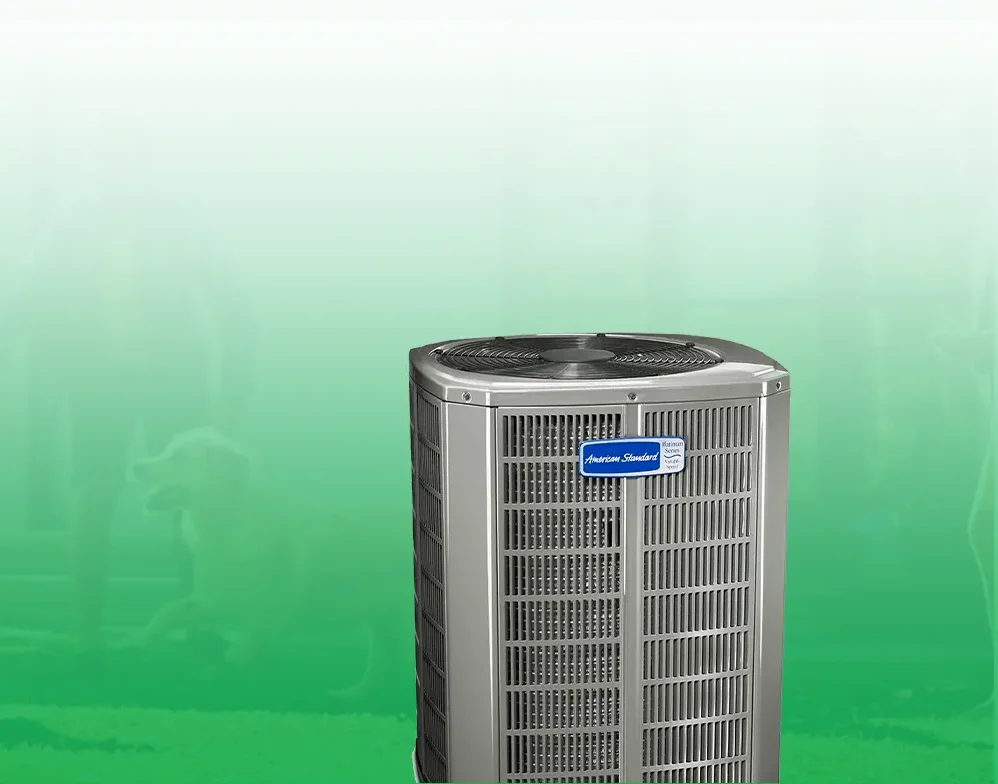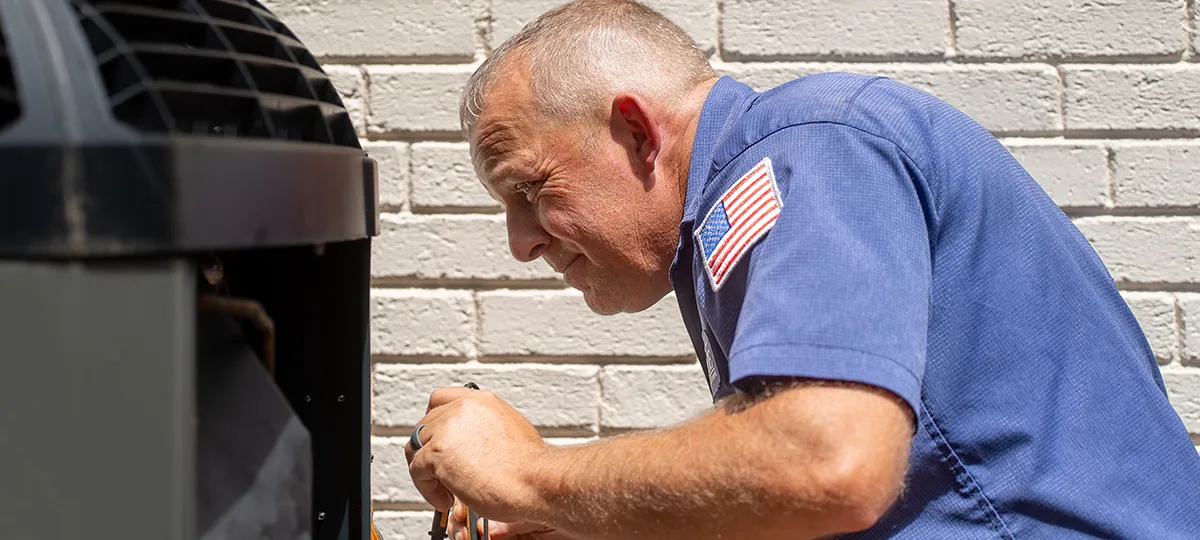If your air conditioning unit isn’t keeping your home cool, there’s a good chance something is wrong. One of the most common yet often overlooked issues is a frozen AC unit. Yes, an AC unit can freeze—even in the summer. Understanding the signs of a frozen AC unit can help you address the problem before it worsens and ensure your home stays comfortable.
1. Weak or Warm Airflow from Vents
When your AC unit is frozen, one of the first things you’ll notice is that the airflow from your vents is either weak or warmer than expected. This is a major red flag and usually indicates that your system isn’t working properly.
Here’s what happens:
- Restricted Airflow: Ice buildup on the evaporator coil restricts the flow of air through the system, leading to weak airflow.
- Warm Air: Because the coil is frozen, it can’t absorb heat from your home properly, which means the air coming out of your vents might feel lukewarm or even warm.
What to do:
- Check your vents to see if the airflow feels weaker than normal.
- Look for obvious obstructions, such as blocked vents or dirty air filters, that might restrict airflow.
- If the problem persists, it’s time to inspect your AC unit for ice buildup.
2. Ice or Frost on the AC Unit
Perhaps the clearest sign that your AC unit is frozen is the presence of ice or frost. You may notice ice on the outdoor unit, the evaporator coil, or even on refrigerant lines. While it might seem odd to see ice on a device designed to cool your home, it’s a common symptom of underlying problems.
Where to look for ice or frost:
- Evaporator Coil: This is located inside the indoor unit, often behind an access panel.
- Refrigerant Lines: These are the copper pipes that connect the indoor and outdoor units.
- Outdoor Unit: In some cases, ice may form on the external components of the system.
Why this happens:
- Low refrigerant levels can cause the coil to freeze.
- Dirty air filters reduce airflow, leading to freezing.
- A clogged or malfunctioning blower fan may fail to circulate air effectively.
What to do:
- Turn off the AC immediately to prevent further damage.
- Allow the ice to thaw completely before restarting the system. This might take several hours.
- Clean or replace the air filters to improve airflow.
- If ice continues to form, call a professional technician to diagnose the issue.
3. Increased Energy Bills
If your energy bills are unusually high despite no changes in your AC usage, it could be a sign of a frozen AC unit. When ice forms on the evaporator coil, your system has to work much harder to maintain the desired temperature, leading to increased energy consumption.
Why energy bills spike with a frozen AC unit:
- Inefficient Cooling: A frozen coil can’t effectively transfer heat, making the system run longer and harder.
- System Strain: The additional strain on the system consumes more energy and can even shorten the lifespan of your unit.
What to do:
- Compare your current energy bill with previous months to confirm the increase.
- Check for other signs of a frozen AC unit, such as weak airflow or visible ice.
- Schedule a professional inspection to pinpoint and resolve the issue.
4. Water Leaks or Pooling Around the Unit
Another common sign of a frozen AC unit is water leakage or pooling around your system. When the ice on the evaporator coil starts to melt, it can overwhelm the drainage system, leading to water accumulation.
Where to look for water:
- Around the indoor air handler.
- Near the base of the outdoor unit.
- Underneath refrigerant lines.
Why this happens:
- The melting ice produces more water than the drainage system can handle.
- A clogged condensate drain line may prevent proper water removal.
What to do:
- Turn off your AC and clean up any standing water to prevent damage to your home.
- Check the condensate drain line for clogs or blockages. Use a wet/dry vacuum to clear debris if needed.
- Contact an HVAC technician if the problem persists, as this could indicate a larger issue.
What Causes an AC Unit to Freeze?
Knowing the root causes of a frozen AC unit can help you prevent it from happening in the future. Here are the most common culprits:
- Dirty Air Filters: Restricted airflow caused by clogged filters can lead to freezing.
- Low Refrigerant Levels: Insufficient refrigerant prevents the evaporator coil from functioning properly.
- Blocked or Closed Vents: Poor airflow due to blocked vents can cause ice buildup.
- Fan Problems: If the blower fan isn’t working properly, air won’t circulate efficiently, leading to freezing.
- Thermostat Issues: Setting the thermostat too low can cause the system to overwork and freeze.
How to Prevent Your AC Unit from Freezing
Prevention is always better than cure. Here are some practical tips to keep your AC running smoothly and avoid freezing issues:
- Replace Air Filters Regularly: Clean or replace your filters every 1–3 months, depending on usage.
- Check Refrigerant Levels: Have your refrigerant levels checked by a professional annually.
- Keep Vents Clear: Ensure vents are open and unobstructed to promote proper airflow.
- Schedule Regular Maintenance: Professional tune-ups can identify and fix potential problems before they escalate.
- Avoid Overworking Your AC: Set your thermostat to a reasonable temperature and use fans to circulate air when needed.
When to Call a Professional
While some issues can be resolved with DIY troubleshooting, others require the expertise of a licensed HVAC technician. You should call a professional if:
- Ice or frost reappears after you’ve thawed the unit.
- You notice unusual noises or smells coming from the system.
- Your energy bills remain high despite efforts to improve efficiency.
- Water leakage becomes persistent or severe.
A frozen AC unit can be a frustrating problem, especially during the peak of summer. By recognizing the signs early—such as weak airflow, visible ice, higher energy bills, or water leaks—you can take swift action to resolve the issue. Regular maintenance and proper usage habits can also help prevent freezing and keep your AC running efficiently all season long.
Don’t wait for the problem to worsen! If you suspect your AC unit is frozen and can’t resolve it on your own, call us at Horne HVAC Charlotte to restore your home’s comfort. With a little care and attention, you can ensure your cooling system stays in tip-top shape for years to come.
















